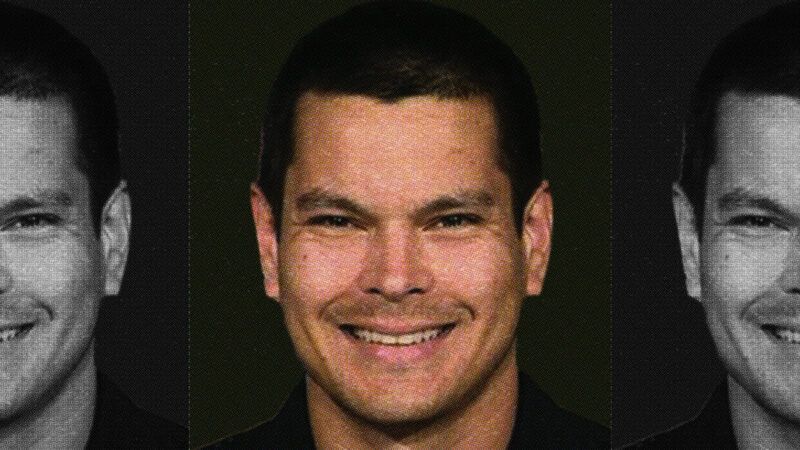Cop Fired for Offering a Homeless Man a Shit Sandwich Rehired by Nearby Town
San Antonio's city manager said the case illustrated how hard it is to fire employees, but it also shows how hard it is for them to stay fired.

Even when bad cops face consequences, police union rules often insulate them from punishment—even for "vile and disgusting" behavior.
In 2016, officers with the San Antonio Police Department cleared a homeless encampment from a private parking lot. Matthew Luckhurst, a bike patrol officer involved in the effort, was trying to get the residents to clean up on their way out when he allegedly offered a homeless man a shit sandwich—literally, dog feces on bread.
Luckhurst would later attest that he had picked up the feces with a discarded piece of bread so he wouldn't step on it, then put it in a food container which he assumed the man would throw away. But David Ramos, a fellow officer who was present, testified that Luckhurst had laughed about it at the scene before later telling other officers that he "had made a sandwich and force-fed someone." Ramos said that was false but claimed that "Luckhurst had spread the rumors because he was a prankster."
Luckhurst was fired in October 2016, with San Antonio arguing that he had created a liability for the city if the man had eaten the sandwich and become sick. The chief of police called it "a vile and disgusting act that violates our guiding principles of 'treating all with integrity, compassion, fairness and respect.'" But according to local government code, officers must be disciplined within 180 days of the incident in question. There was some confusion over the exact incident date, partly because Luckhurst's body camera was not turned on. Arbitrators determined in March 2019 that the department acted too late and ordered Luckhurst reinstated.
By that time, Luckhurst had committed another shitty prank: A female San Antonio officer complained about the cleanliness of the women's restroom facilities at the police station. In response, Luckhurst and another officer in June 2016 defecated in a toilet in the women's bathroom and spread a brown substance on the seat. Luckhurst bragged about it to other officers. The department placed him on another indefinite suspension, and in June 2020, four full years after the incident, an arbitrator affirmed the termination.
But earlier this month, the San Antonio Express-News reported that just five months after his final firing, Luckhurst was hired as a reserve officer by the police department in Floresville, Texas, 30 miles away. This week, after being inundated with emails, Floresville Mayor Cissy Gonzalez-Dippel announced that on December 13, "Matthew Luckhurst was released from employment," and the city would be "implementing stricter hiring policies for all city of Floresville employees."
After Luckhurst's second termination was upheld, San Antonio City Manager Erik Walsh said, "This individual clearly has no business wearing an SAPD uniform, and it should never have been this hard to fire him." This is a common problem among police departments: In Washington, D.C., for example, the city's police department reinstated at least 37 fired officers over six years, at a cost to the city of more than $14 million in back pay. Nearly half of the officers had been terminated for conduct deemed a "threat to safety."
But Luckhurst's case provides a further example of how it is hard for a fired officer to stay fired. When Floresville hired Luckhurst, a cursory Google search would have revealed his history. Timothy Loehmann, the Cleveland police officer who killed 12-year-old Tamir Rice, has been hired as an officer twice in recent years, each time resigning when it was publicly reported. Loehmann was fired not for shooting an unarmed child but for concealing that a police department where he'd been previously employed had deemed him "unfit for duty."
Just like with Luckhurst, Loehmann's history posed no problem in securing further employment as a police officer, and he only left when public outcry demanded it.


Show Comments (48)